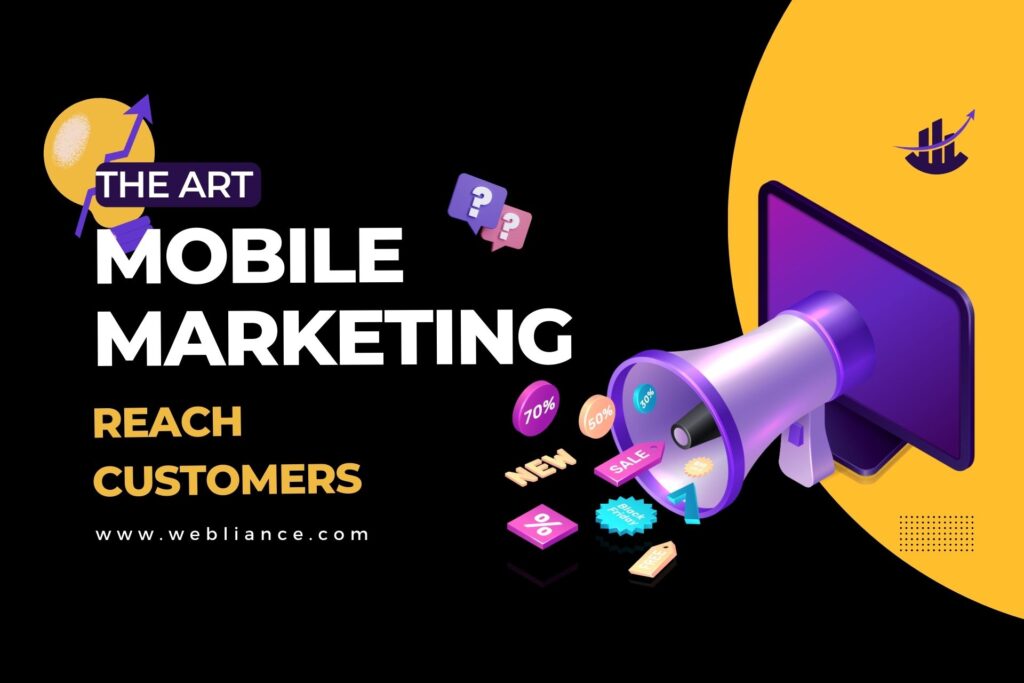1. Introduction to Mobile Marketing
In this digital age, mobile devices have become an integral part of our daily lives. Mobile marketing is a strategy that leverages mobile devices like smartphones and tablets to reach and engage potential customers. It encompasses various techniques such as SMS marketing, mobile apps, mobile-friendly websites, and more. Mobile marketing presents a unique opportunity to connect with customers on the go, and its importance is continually growing in the digital marketing landscape.
2. Importance of Mobile Marketing
With the increasing usage of smartphones, people are constantly connected to the digital world. Businesses can capitalize on this trend by optimizing their marketing strategies for mobile platforms. Mobile marketing allows businesses to target their audience more effectively, leading to increased brand visibility, engagement, and ultimately, higher conversion rates.
3. Understanding the Mobile Audience
Understanding your target audience is crucial in mobile marketing. Mobile users have specific behaviors and preferences that differ from desktop users. Analyzing data related to mobile usage patterns, preferred apps, and browsing habits can help tailor your mobile marketing strategy to effectively reach and engage the mobile audience.
4. Crafting a Mobile Marketing Strategy
A successful mobile marketing strategy involves defining clear objectives, understanding your audience, selecting appropriate channels, creating compelling content, and optimizing for mobile devices. Integrating various elements like SMS campaigns, mobile advertising, and social media engagement into a cohesive strategy can maximize results.
5. Mobile-Friendly Website and Apps
Having a mobile-friendly website and user-friendly mobile apps is paramount. A seamless user experience on mobile devices enhances brand credibility and encourages users to engage further. Optimizing website and app design for mobile screens and ensuring fast loading times are critical components of a mobile-friendly approach.
6. SMS and Text Marketing
SMS marketing remains a powerful tool in mobile marketing. It involves sending targeted, personalized text messages to users, providing them with updates, promotions, or alerts. Crafting concise and engaging messages can drive customer engagement and foster a sense of personalized communication.
7. Mobile Advertising
Mobile advertising involves displaying ads on mobile websites, apps, or within other mobile content. Effective mobile advertising entails creating visually appealing and relevant ads that capture the attention of the mobile audience. Utilizing platforms like Google Ads or social media advertising can be highly effective in this realm.
8. Social Media for Mobile Marketing
Social media platforms are primarily accessed via mobile devices. Therefore, optimizing your social media content for mobile consumption is crucial. Engaging posts, captivating visuals, and interactive content on platforms like Facebook, Instagram, and Twitter can significantly impact brand visibility and engagement.
9. Location-Based Marketing
Leveraging location data allows businesses to send personalized offers and promotions to users based on their geographical location. This strategy, known as location-based marketing, enhances user experience and can drive foot traffic to physical stores.
10. Mobile SEO Strategies
Optimizing your website for mobile search is vital for mobile marketing success. This includes optimizing site speed, improving mobile site design, and using mobile-friendly keywords to enhance visibility on mobile search engines like Google.
11. Analytics and Performance Tracking
Utilizing analytics tools to track the performance of your mobile marketing efforts is essential. Understanding user behavior, conversion rates, and other relevant metrics can help refine your strategy and make data-driven decisions for better results.
12. Personalization in Mobile Marketing
Personalizing your mobile marketing messages based on user behavior and preferences can significantly boost engagement and conversions. Tailoring content and offers to individual users makes them feel valued and increases their likelihood of taking the desired action.
13. Challenges and Risks in Mobile Marketing
While mobile marketing offers numerous benefits, it also presents challenges such as ensuring cross-platform compatibility, addressing privacy concerns, and dealing with varying mobile device capabilities. Understanding and mitigating these challenges is vital for a successful mobile marketing campaign.
14. Future Trends in Mobile Marketing
The landscape of mobile marketing is constantly evolving. Future trends may include the integration of AI, augmented reality (AR), virtual reality (VR), and voice search into mobile marketing strategies. Staying updated with technological advancements is key to staying ahead in this ever-changing field.
15. Conclusion
Mobile marketing is an art that requires creativity, strategic thinking, and a deep understanding of the mobile audience. By embracing the potential of mobile devices and implementing effective mobile marketing strategies, businesses can reach customers on the go, boost engagement, and drive success in the digital era.
FAQs
1. How do I start with mobile marketing for my business?
To begin with mobile marketing, assess your target audience, choose suitable platforms, create mobile-friendly content, and utilize various mobile marketing channels to engage with your audience effectively.
2. Is mobile marketing effective for small businesses?
Yes, mobile marketing is highly effective for small businesses as it allows cost-effective targeting, increases brand visibility, and provides an opportunity to connect with a broader audience on mobile devices.
3. What are the key metrics to measure mobile marketing success?
Important metrics include mobile traffic, user engagement, conversion rates, app downloads (if applicable), click-through rates (CTR), and return on investment (ROI) specific to your mobile marketing campaigns.
4. How can I overcome challenges in mobile marketing?
To overcome challenges, ensure your website is mobile-friendly, prioritize user experience, stay updated with mobile trends, address privacy concerns, and regularly analyze and optimize your mobile marketing strategies.
5. What are some upcoming trends in mobile marketing?
Future trends may include increased use of AI and machine learning, advancements in AR and VR integration, more personalized experiences, and a stronger focus on voice search optimization in mobile marketing. Stay tuned to stay ahead in the dynamic mobile marketing landscape.
